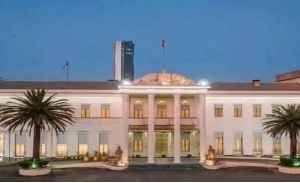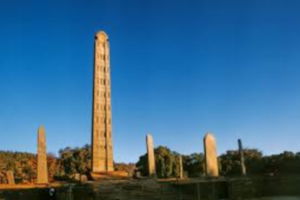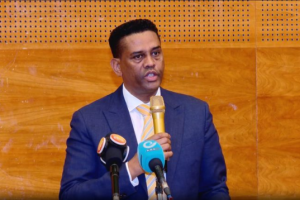1.ACFTA plays its own dysfunctional impacts for the all-rounded performance
African free trade agreement has untapped potentials to contribute a lot in the overall performance of the continent. In contrast, most scholars say ACFTA plays its own dysfunctional impacts for the development of the continent.
Dr Atlaw Alemu Lecturer at Addis Ababa University, says though ACFTA has played its own dysfunctional impacts, not to obtain monetary terms and revenue through import tax, custom tax, more than 90 percent of ACFTA is being beneficiary for the well-being of African society, including production efficiency.
Dr. Costantinos Berhutesfa for his part says that Free trade is an economic practice whereby countries can import and export goods without fear of government intervention. African countries can benefit from free trade by increasing their amount of or access to economic resources. He argues Free trade agreements enable small nations to obtain the economic resources which are essential for production of consumer goods or services.
“Free trade can improve the quality of life for citizens of a nation. Importing from neighboring countries ensures a constant flow of goods that are readily available for consumption.” He underscored.
He also notes that better foreign relations are usually an unintended results of free trade. African countries can also use free trade agreements to improve their military strength and their internal infrastructure, as well as to improve politically. African countries can use free trade to improve their production efficiency, according to Costantinos.
In terms of ways to starting up ACFTA, he said that Infrastructure plays a key role in economic growth and poverty reduction. Conversely, the lack of infrastructure affects productivity and raises production and transaction costs, which hinders growth by reducing the competitiveness of businesses and the ability of governments to pursue economic and social development policies.
Regarding the challenge the ACFTA faced, He said that the potential pitfalls are a major potential challenge in harmonizing Africa’s heterogeneous politics and economies under one agreement is the wide variation that exists in their levels of development. Other challenges are through political, security, economic and cultural ties. “Former colonizers maintain a tight stranglehold in Francophone Africa, both to serve their interests and maintain a last bastion of imperial prestige,” he argues.
The complexities of the regional integration, the assumptions that are made on the basis of perceived necessities or demand would also pose question-marks about the possibility of bringing the intended change.
Thus Costantinos says, the AfCFTA could prove to be a force for economic divergence there is no comprehensive policy-making and preferential treatment for Africa’s most at-risk economies. It is therefore crucial that participating countries build an efficient and inclusive institutional structure to avoid leaving any economies behind.
In the respective of historical perspective, he indicates that One of the Key Decisions of the 32nd Ordinary Session of the Assembly of the African Union (January 2019) is that it endorsed the recommendations of African Union Ministers of Trade on Template on Tariff Liberalization which will be used by Member States in preparing the AfCFTA Schedules of Tariff Concessions.
Further, it has endorsed the designation of Sensitive Products and Exclusion List on the basis of the following criteria: food security, national security, fiscal revenue, livelihood and industrialization.
He further says that a Free Trade Zone or Area is a region where there are no tariffs or tax restrictions on supply of goods and services adding that it is essentially an area with economic integration.
“Countries located with an FTA enjoy duty-free trade relations between/ among themselves. Kindly note that the original idea; Africa Free Trade Zone (AFTZ) is a Free Trade Area, initially pitched at the EAC-SADC-COMESA summit by the officials of the Southern African Development Community (SADC), the Common Market for Eastern and Southern Africa (COMESA) and the East African Community (EAC).
The African Continental Free Trade Area agreement was endorsed on March 21, 2018, by 44 African countries in Kigali, Rwanda. Nine other African Union member-countries, including Nigeria and South Africa, have delayed their signing of the agreement.
About the main objectives of AFCFTA, he said that the main aim of the AfCFTA is to remove import duty on 90% of all goods while identified “sensitive items” which make up the balance 10% would also be phased out later as tariff free.
“The agreement is also meant to liberalize commercial services and also tackle the so-called ‘non-tariff barriers’ which include extended delays and harassment at border posts, which hamper trade between African countries. Ethiopia’s participation as the seat of the African Union is highly significant,” he added.
Concerning Nigeria and its delayed willingness to join ACFTA, he pointed out that the main opponents to the treaty in Nigeria are the Nigeria Labour Congress and the Manufacturers Association of Nigeria. “If we must be objective, their reasons do make sense.
That is, for the Nigeria Labour Congress, the AfCFTA agreement means more jobs will be outsourced to foreign companies. Already, many jobs, especially in the construction and mining industries, already get outsourced to foreigners. Multinationals will try to reduce expenses on recruitment and training wherever they are investing in. Implementing these agreements usually come with cutting cost on public subsidy,” he argues.
He also streessed that for the Manufacturers Association of Nigeria, reduced tax on importation is bad for local industry. The AfCFTA agreement will most likely affect most of Nigeria’s local industry, further widening budget deficit. Nigeria is already an enclave economy and this agreement reduces any hope of actually achieving diversification.
The Ethiopian Herald June 16/2019
BY MEHARI BEYENE




